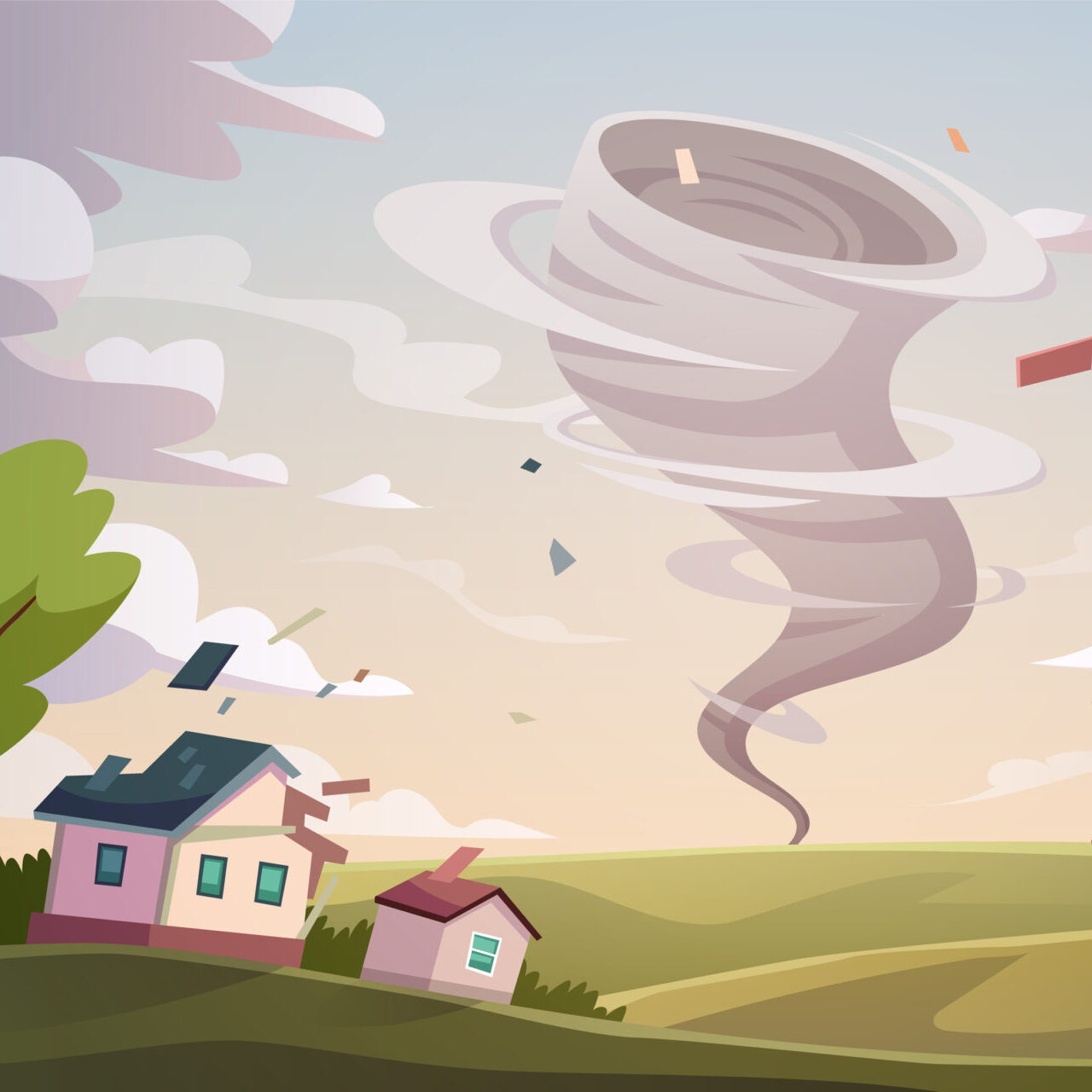
13 Ways That Covid-19 Will Change The Insurance Industry
Overview | Blog Posts | Third-Party Coverage | Related | Print | Share
June 1, 2020
AUTOMOBILE INSURANCE
1. Some people will have permanent complications from the Coronavirus1, which will create a new population with pre-existing conditions. This may result in either more “eggshell Plaintiffs” or in an exacerbation of a pre-existing condition in an MVA.
2. As there is mass unemployment and furloughing, individuals are cutting back on expenses, including either canceling their automobile insurance policies or reducing their automobile insurance coverage. This will result in an increase in UM/UIM claims or the insurance companies will be obligated to pay less on claims due to individuals having less coverage. However, fewer people will carry UM coverage as UM coverage cannot be bought without buying BI coverage.
HEALTH INSURANCE
3. Family First Coronavirus Response Act mandates coverage for COVID-19 diagnostic testing without mentioning covering treatment for COVID-19 while Coronavirus Aid, Relief, and Economic Security Act provides funding for COVID-10 treatment for the uninsured.
- Families First Coronavirus Response Act (Pub. L. No. 116-127) (Mar. 18, 2020) requires coverage of “in vitro diagnostic products,” including those at visits at health care providers’ offices, urgent cares, and emergency rooms, with no cost-sharing, pre-authorizations or other medical management requirements. Treatment for COVID-19 is not included in this Act. Additional funding is also authorized, including $1,000,000 for the Public Health and Social Service Emergency Fund to reimburse health care providers for COVID-19 diagnostic testing of uninsured individuals.
- Coronavirus Aid, Relief, and Economic Security Act (“CARES Act ”) (Pub. L. No. 116-136) (March 27, 2020) provides $100 billion for treatment and testing for the uninsureds that will be reimbursed at Medicare rates. The Provider Relief Fund apportioned $50 billion for general distribution to Medicare facilities and providers affected by COVID-19 based upon their net patient revenue. The other $50 billion has been apportioned to providers who are located in areas particularly impacted by the COVID-19 outbreak or in rural areas and providers who serve low-income or uninsured Americans.2
4. As unemployment rates rise, more Americans will lose their employer sponsored health insurance. Some of the major health insurance companies have agreed to waive their insureds’ cost-sharing payments for COVID-19 treatment.
5. COVID-19 claims are increasing, but claims for non-urgent conditions could decrease as individuals may avoid visiting medical facilities or physician offices to reduce exposure to COVID-19.3
6. Although insurers cannot impose cost sharing, preauthorization, or other medical management measures for COVID-19 testing and some insurers have agreed to waive insureds’ out-of-pocket costs for COVID-19 treatment, it is unknown what impact insurers incurring substantial unexpected costs and employees being laid off will have on next year’s health insurance premiums.4 Typically, the insurer determines the premium based upon prior expenses incurred by the pool of people it insured and premiums increase when the medical costs increase.
LOSS OF USE/BUSINESS INTERRUPTION INSURANCE
7. There will be an increase in loss of business income claims as a result of state mandatory shutdown orders.5 Insurers have asserted that business interruption policies do not cover communicable diseases, like COVID-19, and were never intended to do so.6
8. Some states are beginning to require that property insurance policies cover business interruptions as a result of COVID-19 claims in order to indemnify insureds for their associated losses.7 Other states are declining to require that property insurance carriers cover business interruption claims associated with COVID-19.8 In addition, some states are considering mandating business interruption coverage.9
EMPLOYMENT-RELATED INSURANCE CLAIMS
9. Unemployment insurance applications are drastically increasing. For the period ending May 9, 2020 , the Labor Department reported that over 36.5 million Americans applied for benefits, which is the worst jobless rate since the Great Depression of the 1930s.10 States are adopting bills that provide coronavirus-related unemployment insurance.11
10.There may be an increase in the number of workers who refuse to return to work due to COVID-19 related concerns, such as a “sick building.” Failure to return to work when offered to do so can result in a denial or termination of unemployment benefits. Some states have incorporated exceptions similar to those contained in the CARES Act. Pursuant to U.S. Department of Labor’s guidance, general fear of COVID-19 is not sufficient grounds for declining to return to work and unemployment benefits will be terminated.12
11. COVID-19 claims for healthcare workers and first responders who must be quarantined or who contract COVID-19 at work may be covered under Workers Compensation even though diseases arising out of employment are usually not covered.13
TRAVEL INSURANCE
12. As travel insurance policies typically exclude epidemics and pandemics, changes in plans or cancellations due to COVID-19 are unlikely to be covered under a travel insurance policy as COVID-19 is now a known event.14
GENERAL CHANGES IN INSURANCE OVERALL
13. The insurance industry will change. Policies that include verbiage clearly covering coronavirus may be revised to carve out this coverage as it has been a significant expense to everyone. Policies that are silent on coronavirus-like issues may be clarified as to what is covered. Insurance companies may either completely carve out coronavirus-like issues or make coverage an add-on. As Terrorism Risk Insurance was developed after 9/11 and was designed so that a share of the costs would be covered by the government when losses reached a specified threshold, a similar pandemic risk insurance may develop relating to COVID-19 and/or virus risks.16
1 Although researchers do not know all of the possible permanent complications from COVID-19, researchers have documented lung problems, kidney failure, liver problems, cytokine storms, headaches, transverse myelitis, and Guillain-Barre syndrome/sensory neuropathy. https://www.medlink.com/page/neurological_complications_of_coronavirus_infections_knowns_unknowns_and_wh
2 https://www.hhs.gov/coronavirus/cares-act-provider-relief-fund/index.html
3 COVID-19 AFFECTING PAYERS CLAIMS: Other Claims Shifting, 33 HEALTH CARE COLLECTOR 1 (2020).
4 Id.
5 Suits have been filed in Florida (Class Action Complaint, Cafe Int’l Holding Co. LLC v. Chubb Ltd. et al., No. 1:20-CV-21641-MGC (S.D. Fla. Apr. 20, 2020) (claiming that “all-risk” insurance policies containing coverage for business interruption that does not exclude viruses, “Extra Expense,” “Extended Business Income,” and “Civil Authority” cover claims for direct physical loss and damage to their properties that suspended business operations, which resulted in loss of business income)); Illinois (Complaint at Law, Billy Goat Tavern I Inc. et al. v. Society Ins., No. 1:20-CV-2068 (N.D. Ill. Mar. 31, 2020) (claiming that “all-risk” insurance policies’ definitions and coverage for “direct physical loss” include “direct physical loss” resulting from state mandatory shutdown orders)); Massachusetts (Complaint, Legal Sea Foods LLC v. Strathmore Ins. Co., No. 1:20-CV-10850 (D. Mass. May 4, 2020) (claiming that their newly obtained “all-risk” insurance policy, which contained no virus or pandemic exclusion even though COVID-19 had already had impacts to businesses in other countries, covered the losses incurred when the restaurant was mandated to close despite the insurer stating that the “ordinance of law” exclusion prohibited coverage where a law regulating use of property is enforced)); and Texas (Plaintiff’s Original Petition and Request for Disclosure, Boutros v. Sentinel Ins. Co., No. 2020-20934 (Tex. Dist. Ct., Harris Cty. Apr. 2, 2020) (claiming that business insurance policies that cover loss of business income and loss incurred as a result of a civil authority order provide coverage for losses based upon mandatory postponement of non-urgent medical procedures and surgeries)).
6 Insurance: “Pandemic Outbreaks Are Uninsured Because They Are Uninsurable” – Business Interruption Coverage Exclusion, 53 MORTGAGE & REAL EST. EXECUTIVES REP. NL 1 (2020) [hereinafter, Pandemic Outbreaks].
7 COVID-19 update: FEMA to fund National Guard virus response; EPA issues flushing guidelines, WESTLAW HEALTH DAILY BRIEFING, Apr. 1, 2020, 2020 WL 1541381 [hereinafter, FEMA] (explaining that New York has a proposed bill requiring that property insurance insurer cover business interruptions associated with COVID-19 losses).
8 Washington, D.C. has declined to mandate business interruption coverage for COVID-19-related claims. D.C. counsel removes proposed COVID-19 business interruption coverage, CQ ROLL CALL INS. BRIEFING, May 6, 2020, 2020 WL 2179725.
9 States considering mandating business interruption coverage include Louisiana, Massachusetts, Michigan, New Jersey, New York, Ohio, Pennsylvania, and South Carolina. Id. Massachusetts, Ohio, New Jersey and New York have introduced legislation mandating coverage of business interruption losses resulting from COVID-19. Pandemic Outbreaks, supra note 6.
10 https://news.yahoo.com/3-million-unemployment-claims-filed-123312806.html.
11 FEMA, supra note 7.
12 States Warn Workers That Unemployment Benefits Could Be Denied for Refusing to Return to Work (Update #1), RIA PAYROLL UPDATE, May 12, 2020, 2020 WL 2394574.
13 Resource Desk, 43 QUINLAN, WORKERS’ COMPENSATION L. BULL. NL 8 (2020).
14 NAIC advises on travel insurance coverage related to COVID-19, CQ ROLL CALL INS. BRIEFING, Mar. 11, 2020, 2020 WL 1163363.
15 Waters: House Financial Services to propose pandemic reinsurance program, CQ ROLL CALL INS. BRIEFING, Mar. 19, 2020, 2020 WL 1301427.









